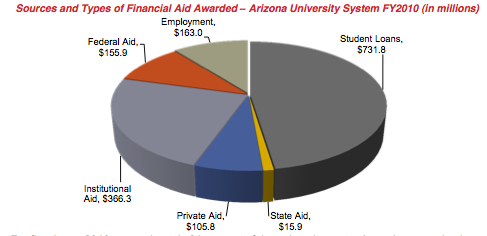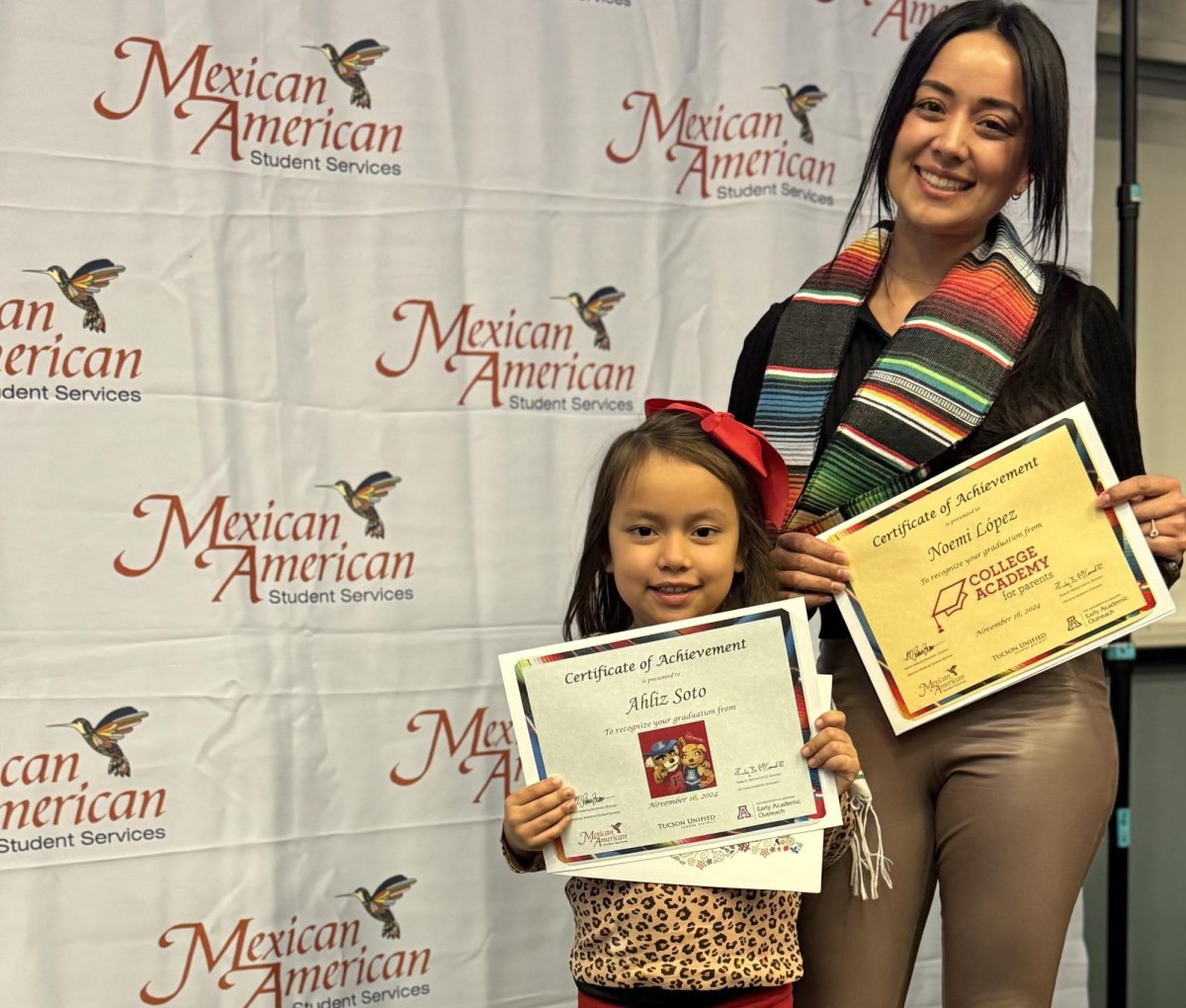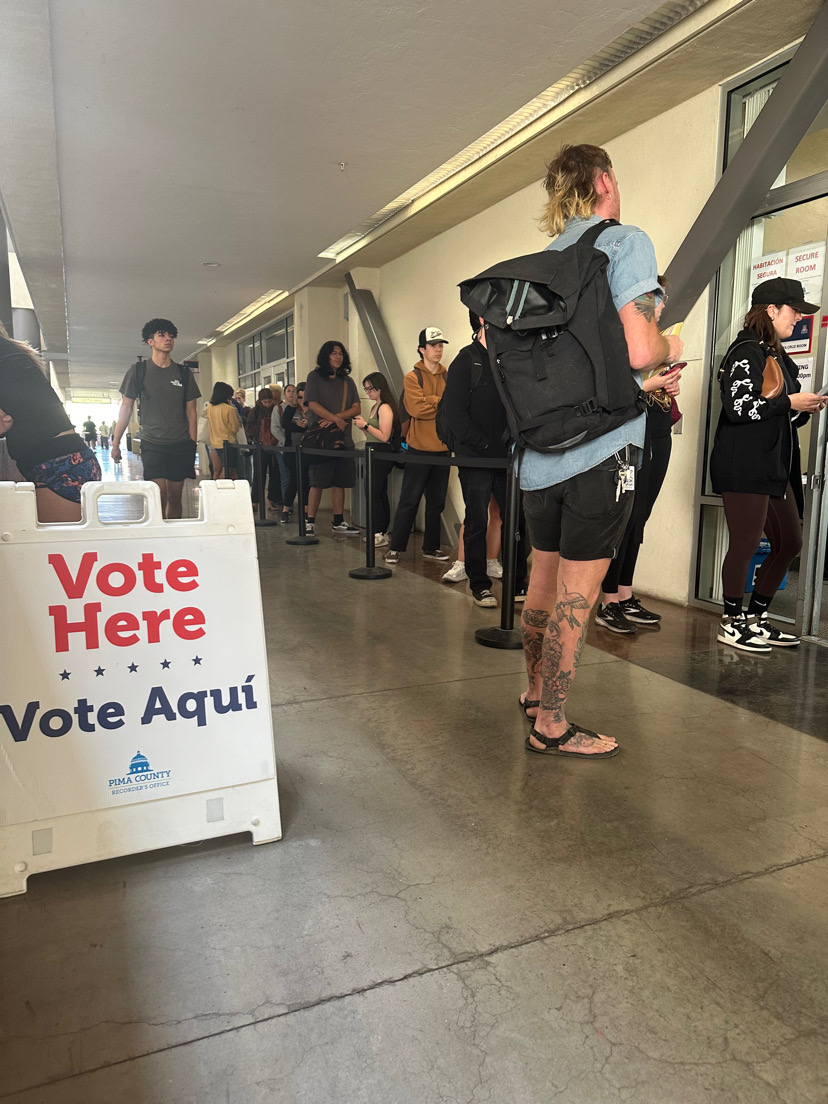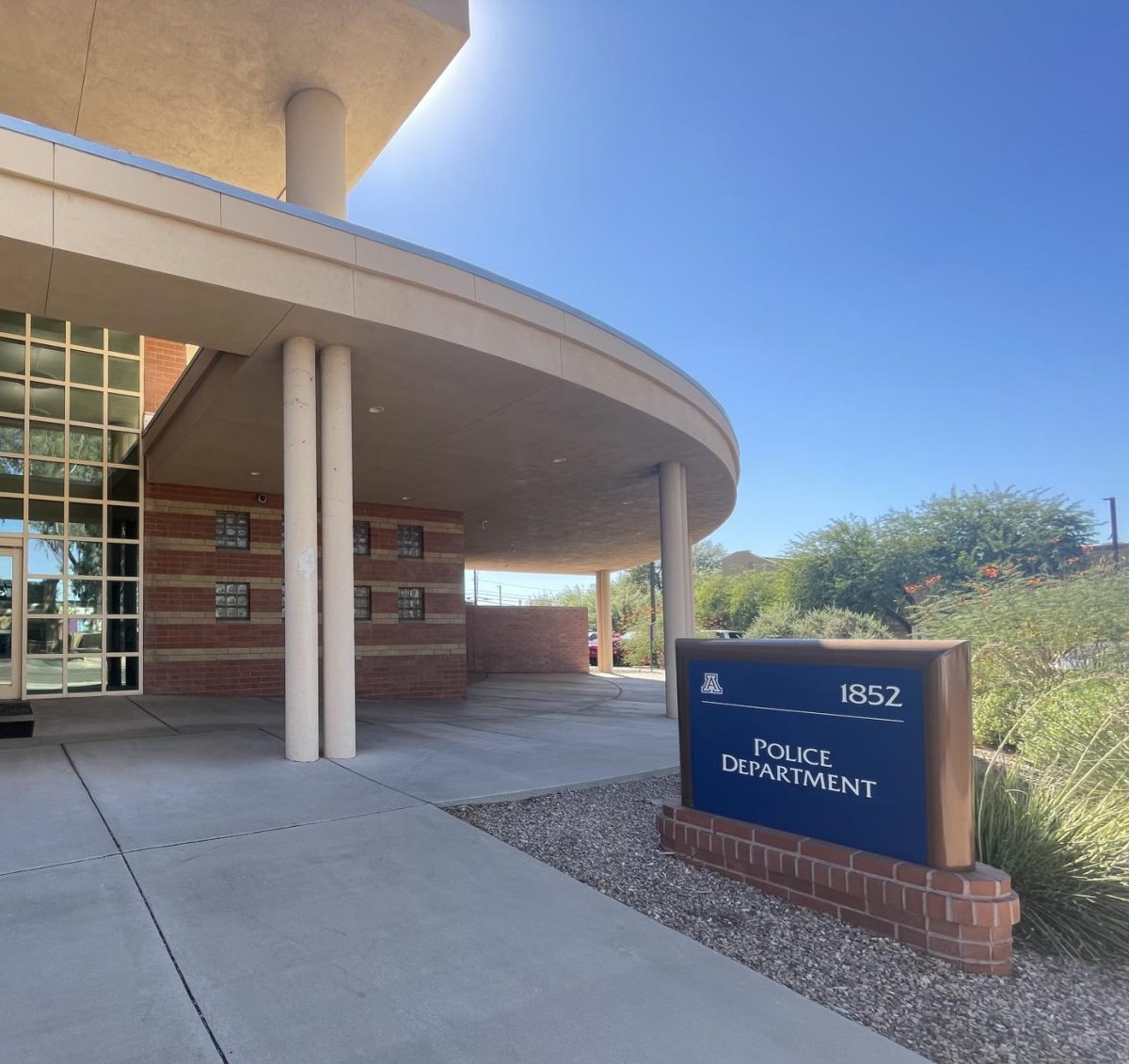If one state legislator has his way most Arizona students at public universities will be dishing out more of their own money to get an education.
Rep. John Kavanagh, R-Fountain Hills, introduced a bill last week that would require all Arizona residents at public universities prove that they spent $2,000 annually of their own cash regardless the amount of grants or other funding they receive to cover tuition costs.
Why? “I don’t think we should be giving away college degrees totally free,” Kavanagh said.
H.B. 2675 requires every student personally contribute $2,000 to tuition unless they are an NCAA student-athlete or solely merit-based academic scholar. His bill targets those who receive need-based funding help.
 Arizona Board of Regents statistics show almost one-third of all undergraduate students pay less than $2,000 a year for tuition through scholarships, grants, and waivers—so they could potentially find their scholarships on the chopping block.
Arizona Board of Regents statistics show almost one-third of all undergraduate students pay less than $2,000 a year for tuition through scholarships, grants, and waivers—so they could potentially find their scholarships on the chopping block.
More than 30,376 in-state students pay less than $2,000 a year for their tuition, and Kavanagh wants to change the formula so student who get scholarships for reasons other than just merit, would have to foot a $2,000 tuition bill.
“The taxpayer shouldn’t have to pony up that money,” he said. “It’s called having skin in the game.”
He believes needs-based scholarships and tuition waivers create a “perverse incentive” against community college enrollment, where students might be “better served” with smaller classes and lower costs.
But others like Wilbert Nelson, president of the Arizona State Conference of the NAACP said this bill discriminates against low-income students.
“Why not just say they don’t want poor, low income or any student that cannot contribute to their education need not apply to Arizona’s state universities?” he asked. “This requirement would not just discriminate against need-based students or persons but would set up a form of selectivity which would prohibit students who may not be able to secure a loan.”
Estimated Total Scholarship and Grants for 2011The three state universities estimated students would be awarded $385.7 million in scholarships and grants. Out of the total amount, $102 million of the scholarships were set aside for need-based financial aid by the Arizona Board of Regents.
Source: Arizona Board of Regents 2011 Annual Report |
Students whose parents can’t qualify for a loan, or who personally have bad or no credit would basically be left in the dust, Nelson said.
Kavanagh, who said he paid $30,000 in loans to send his own son to Cornell and “isn’t whining that the taxpayers of New York state didn’t pay [his] son’s tuition,” said he thinks “$2,000 a year isn’t a burden that can’t be overcome,” especially since “universities are quick to proclaim that a four-year degree increases earnings over the lifetime of a student.”
But Nelson, as well as Fred Duval, chair of the Arizona Board of Regents, said placing trust in loans is not the answer.
“Student debt is the next economic bubble in the United States, and the combination of rising student debt with a weakening job market is an invitation for significant loan default,” Duval said.
Duval added the legislature has no place in creating these requirements since state money only makes up 1 percent of all financial aid—money that has lowered the cost of tuition for so many students.
Need-based grants and waivers do not come from state dollars, he said.
“We’re not talking about state money, we’re talking about university money,” said Duval.
As to financing needy students, it’s a good investment, he said.
“A gifted student who has all the potential in the world to sail through to a degree and be a dynamic economic contributor to our state but otherwise couldn’t attend is a good investment of our dollars,” Duval said.
Overall, the bill is a “This is a strait-jacket approach that addresses the wrong challenge,” Duval said.
“We are in the business of increasing access and increasing completion,” not making “ironclad rules that disenfranchise certain students who are financially struggling,” he said.
The bill is raising concern statewide, as word has spread throughout social media such as Facebook and Twitter. Groups including the Arizona Students’ Association are mobilizing toward the capitol in protest.
Dan Fitzgibbon, a senior at the University of Arizona majoring in business economics, is alarmed by the bill and said he thinks it might deter future bright, in-state students who might also have economic need from staying in-state.
“We’re going to lose a lot of high-caliber students to other universities out of the state,” Fitzgibbon said. “We’re also going to limit access to students looking to better their circumstance on the socioeconomic level.”
He added there’s a lot more to attending college than the cost of tuition.
“It really is misinformation that there are so many students that aren’t paying their own way through college,” Fitzgibbon said, who is also board chairman of the Arizona Students’ Association. “Tuition isn’t the only cost students are paying. I have a hard time believing that students aren’t really paying anything when we’ve seen that debt load has increased so much.”
On average in the state of Arizona, the debt load of an exiting student is $21,158—much higher than the $8,000 Kavanagh figures most students should owe.
“As every student knows books are very expensive. Transportation, housing, fees, there is a variety of other expenses that are not reflected in just tuition. Students are already taking on loans to meet the non-tuition costs of attendance,” Duval said.
Arizona’s scholarship foundations are also alarmed.
“As Arizona’s largest private provider of scholarship awards, the Arizona Community Foundation would be opposed to any legislation that could potentially hinder students from attaining a college education, particularly those from low- and moderate-income families who have demonstrated financial need,” said Steve Seleznow, president and chief executive officer, Arizona Community Foundation.
{flash width=”500″ height=”500″}slideshows/tuition/soundslider{/flash}
{source}![]() <iframe width=”500″ height=”254″ src=”http://www.youtube.com/embed/HlKO5PKm-Rc” frameborder=”0″ allowfullscreen></iframe>
<iframe width=”500″ height=”254″ src=”http://www.youtube.com/embed/HlKO5PKm-Rc” frameborder=”0″ allowfullscreen></iframe>
{/source}
Mejdrich is a senior at the University of Arizona and is the Bolles Fellow this semester covering the Legislature. The fellowship was named to honor former Arizona Republic investigative reporter Don Bolles who was assassinated in the line of duty.







